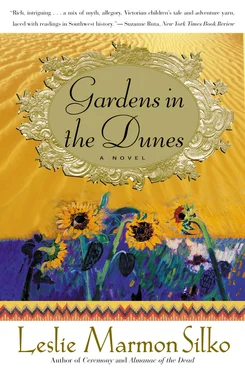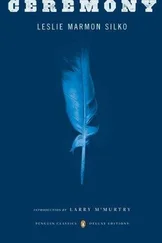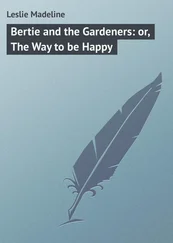♦ ♦ ♦
The Sand Lizard sisters packed up and left Road’s End after a guest revealed the flooded minister had contacted the Chemehuevi reservation superintendent about unauthorized Indians living at Road’s End.
The twins didn’t want them to go, but Sister and Indigo knew if they stayed there’d be trouble; they didn’t belong there. The twins lied for them, and told everyone the Sand Lizard sisters returned to the reservation at Parker. The day they took the mail wagon to Needles, they covered the cages with a tarp and hid themselves, crouched down in the deep bed of the freight wagon. Linnaeus and Rainbow both sat solemnly in their cages as if they understood their garden crimes had contributed to the trouble.
The twins stayed to care for the garden and assert their rightful ownership of the land their old auntie sold them. Their flooded neighbors wanted that land for gardens to feed themselves. The twins didn’t blame the neighbors; good farmland was in short supply. But Maytha and Vedna had to eat too. They paid old auntie two hundred silver dollars, and they had proof.
No one lived on the riverbank south of Needles after that winter the soldiers and Indian police broke up the dance for the Messiah. The driver of the mail wagon was kind enough to stop south of town to let them off and even helped unload the cages and some of the bundles. Sister showed Indigo the very same hearthstones they’d used before with Mama and Grandma.
While the weather was still dry, they got busy building. They used sturdy pieces of crates and other scrap lumber they found in the town dump, which was full of useful materials. Of course the Mojaves and Walapais and others who lived around Needles searched the dump every day too. The girls didn’t find any large pieces of tin, but they patiently pounded tin cans flat, and with nails they pulled out of the old lumber, they were able to cover the scrap lumber entirely with tin.
On the shortest day of the year a big storm came with much rain and even sleet and hail to test the lean-to they built on the riverbank. The wind whined and the wood creaked and groaned and the rain and sleet whipped against the walls; it wasn’t snug like the little stone house at Road’s End, but it kept them dry.
They stuffed the cracks with Indigo’s stockings and arranged their bundles and Indigo’s remaining valises against the thin walls for added warmth and protection. They all huddled together — the girls and baby with the monkey and parrot — wrapped in the good blankets Hattie gave them.
Sister felt a little regretful for the mean feeling and thoughts she’d had about the white woman who was so generous to her sister and her. They’d been so busy packing their last week at Road’s End, Indigo didn’t have time to check at the trading post for letters.
The morning after the storm, the girls woke to the sound of dozens of crows calling from the bare white branches of the cottonwood trees along the river. The girls were overjoyed; the Messiah and his family must be on their way! They drank the last of the coffee as they discussed the preparations that must be made.
Later they took turns carrying the little grandfather, who watched intently as the sand over the stones was brushed away and missing stones replaced in the big circle that formed the spirit house of the Lord.
More crows still had to come, and of course the girls had to get people to come dance or the Messiah and his family could not appear. Once the stones of the circle were in place, the girls began to gather firewood. On days the mail wagon went south, they watched for Chemehuevi people going as far as Road’s End; a girl about their age agreed to get this message to the twins: The first crows have arrived.
While the girls scoured the riverbank for snags of driftwood under the tamarisks and willows closest to the river, the racket of the crows accompanied them. Linnaeus clung to Indigo’s side until he saw some plant delicacy and slid to the ground; now that Rainbow’s wing feathers had grown out, he flew ahead to reach plant sprouts ahead of the monkey. Indigo recalled how the crows in Aunt Bronwyn’s garden welcomed her and Rainbow, and again in Italy the crows reminded her the Messiah and his family were not far away. Sister didn’t say anything; from her expression Indigo saw she didn’t believe her.
“Maybe those were a different kind of crow,” Sister said. They stopped to rest on the sandy bank in the sunshine. Sister unbundled the little grandfather from the shawl on her back and spread it over the ground so he could crawl. Indigo shook her head slowly; no, it was true; she’d seen for herself. In a little town the people gathered to pray and the Messiah’s Mother showed herself on a stone wall.
Sister made no comment as she offered her arm so the little grandfather could steady himself as he tried to pull himself up. Now the monkey and parrot rejoined them; Linnaeus was fascinated by the baby, but Rainbow only wanted to chew the edge of the blanket they were sitting on.
Indigo described the old stones Aunt Bronwyn cared for in her gardens; these stones used to move and to talk until the churchgoers smashed them. Sister nodded; she believed that. One night the stones even called Hattie out of her bed and she woke up in the garden! Sister laughed and Indigo joined her. Grandma Fleet knew stones that played tricks! Remember the stone that sweats and the other that urinates? They laughed again.
Indigo said in England there were a great many Christ Churches but the Messiah and his family seemed to travel most of the time. Sister nodded. That was because so many greedy and cruel people did damage only the Messiah could repair. Trouble was in so many places, he had to travel constantly, and so did the Mother of God, who often went to help alone.
The warm sunshine felt so good after the cold weather that followed the big storm; Sister stretched out on the blanket and the baby crawled up on her chest and pulled at her dress for a breast until she unbuttoned and gave him one, then lay back to stare up at the sky. Indigo described the stone figures, half man and half horse or bull, hidden in shady green woods, and how they startled her and Hattie. There was even a giant head of a woman who kept baby snakes in her hair. Sister was interested but not shocked: Grandma Fleet always said humans were capable of sex with anything and on rare occasions these strange creatures were born. The stone figures were proof of the strange offspring.
The wind came up and small puffy clouds began to move across the sky; the baby was asleep with her nipple half out of his mouth, so Sister gently laid him on the blanket beside her and buttoned up.
Indigo told Sister about the gardens. All flowers? Nothing to eat? Yes, like the little flower gardens in front of houses in Needles. Only their friend Laura had big, big gardens — one was all black flowers, black gladiolus Laura raised herself. The black flowers honored the first mothers — half human, half bird, half bear, half snake, their clay figures carefully placed in little spirit houses in the black garden. Best of all was the rain garden of sand and tall succulents; their spikes of yellow, orange, and red flowers towered above the snake girls with basins on their laps to call the rain.
The sun moved around and left them in the shade and it got chilly. Sister sat up, her face bright with enthusiasm; Grandma Fleet always said snake girls and bird mothers were everywhere in the world, not just here!
News traveled up and down the river about the return of the crows and the encampment near Needles. People came from up and down the river; some Paiutes claimed no one told them about the camp but a big flock of crows led them south as they had before, when the soldiers attacked the holy family and the dancers. Soon small campsites with lean-tos of willows and cottonwood branches appeared on the riverbank not far from the sisters’ tin shack.
Читать дальше












